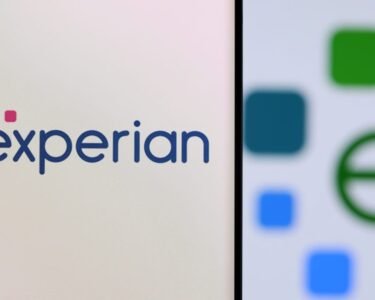World Bank advocates for developing a regulatory framework to permit MFS operators in lending activities
Infographics: TBS
“>

Infographics: TBS
Digital nano loans, introduced by bKash, Bangladesh’s largest mobile financial service (MFS) provider, are rapidly gaining traction, with daily disbursements via mobile wallets now exceeding those of traditional banks.
Launched three years ago in partnership with City Bank, these collateral-free loans, starting from as little as Tk500 and going up to Tk50,000, were designed to serve unbanked individuals in the informal sector.
City Bank leverages bKash’s extensive data and payment infrastructure to disburse between 25,000 and 30,000 loans daily through mobile wallets. In contrast, all traditional banks combined disburse a maximum of 20,000 loans per day through conventional channels.
As of April 2025, City Bank has disbursed Tk2,300 crore to 9.5 lakh bKash users, with an average loan size of Tk4,000. The digital nano loan initiative has proven profitable, with a default rate of less than 1%.
Despite strong demand, bKash initially rolled out its nano loan service on a limited scale due to the absence of a clear regulatory framework for fintech lending in Bangladesh.
The World Bank, in its recent report “Bangladesh: Country Private Sector Diagnostic”, highlighted these regulatory barriers, noting that the environment for digital lending remains underdeveloped. While fintech lending is permitted in some markets, MFS providers in Bangladesh are currently required to partner with banks to offer financial services.
The World Bank report also emphasised the value of data from e-money wallets, phones, and digital platforms for credit underwriting, a data-driven model that has attracted international investment in markets like East Africa and India. For nano loans offered by banks, microfinance institutions (MFIs), and fintech companies to be economically viable, the report suggests automating customer onboarding, credit scoring, loan disbursement, and repayment collection through digital channels.
“bKash is committed to simplifying and easing financial transactions for the common citizen,” said Ali Ahmmed, chief commercial officer (CCO) of bKash. “Access to collateral-free digital loans during times of need can significantly empower customers by strengthening their financial inclusion.”
Ali also cited an International Finance Corporation (IFC) report that called for policy reforms, including the enactment of the draft Personal Data Protection Act (PDPA) 2024 and the establishment of a private sector credit bureau, to allow MFS providers to leverage alternative data sources directly.
“With the right regulatory backing, MFS platforms could assess creditworthiness themselves, unlocking access to affordable credit for millions of underserved individuals and small businesses,” he added.
WB’s perspective on expanding digital lending via MFS
Mobile financial service operators in Bangladesh are well-positioned to offer broader financial services, including credit, but the regulatory framework for digital finance remains underdeveloped, according to the recent World Bank report. The report noted that MFS usage in Bangladesh is still heavily dominated by basic services like cash-in and cash-out transactions, accounting for 86.3% of usage in 2024, while digital payments made up only 13.7%.
Despite traditional financial service providers beginning to offer digital products, Bangladesh remains significantly underbanked, indicating strong potential demand for digital financial services (DFS).
Fintech, the report suggests, can bridge this gap by delivering financial services at scale and lower cost through mobile and internet technologies making small-scale loans economically viable through automation. The World Bank highlighted that in many emerging markets where traditional banking penetration is low, the widespread use of MFS accounts provides an entry point to additional digital financial products such as savings, loans, investments, and insurance. Embedded finance (EmFi), where non-financial businesses offer working capital loans enabled by transaction data, is also gaining ground globally. While Bangladesh possesses the technological capabilities for such services, the market is yet to fully develop.
How City Bank uses bKash data for creditworthiness assessment
City Bank is utilising transaction data from bKash to assess borrower risk. “The customer’s digital payment behaviour helps us identify creditworthy borrowers,” said Arup Haider, Deputy Managing Director and Head of Retail Banking at City Bank.
Though still in an early stage, the bank sees the nano loan model as a tool for long-term credit empowerment. “We might take a Tk10,000 risk today, which could grow to Tk40,000 over five years based on repayment behaviour,” Arup explained.
He stressed that the traditional view of financial inclusion – focused mostly on savings – is incomplete without credit. “Nano loans can democratise access to credit, especially for the informal sector,” he said.
City Bank initially used Bangladesh Bank’s digital lending refinancing scheme, which capped interest rates at 9%. However, it later opted out to fund loans from its own resources, allowing greater pricing flexibility.
“Small-ticket loans aren’t viable through traditional banking due to high operational costs,” Arup noted. With bKash’s vast transaction data – covering utility bill payments, merchant transactions, and more – City Bank uses an AI-powered scoring engine to evaluate borrowers, similar to models widely adopted in China.
Why Bangladesh trails in digital lending
According to the World Bank, Bangladesh’s MFS ecosystem is still dominated by basic services. Although traditional financial institutions have started offering digital products, the country remains underbanked. Only 26.2% of adults hold a bank account, and just 14% have access to formal credit. SME coverage is also low, with only 28% served by formal institutions. The World Bank report says that fintech can address these gaps by delivering cost-effective services at scale. Automated processes and digital analytics could make small loans and transactions economically feasible.
The report adds that mobile wallets are still unsuitable for wholesale transactions due to low limits and high costs of transferring funds to bank accounts – discouraging retailers from embracing digital payments.
To overcome these barriers, the World Bank recommends that Bangladesh Bank:
- Establish clear protocols for issuing high-limit merchant and corporate wallets.
- Reduce transaction fees on the Interoperable Digital Transaction Platform (IDTP) to encourage usage.
If implemented, such reforms could unlock significant investment opportunities across the DFS landscape – spanning banks, fintech firms, MFIs, and digital platforms, the report says.





